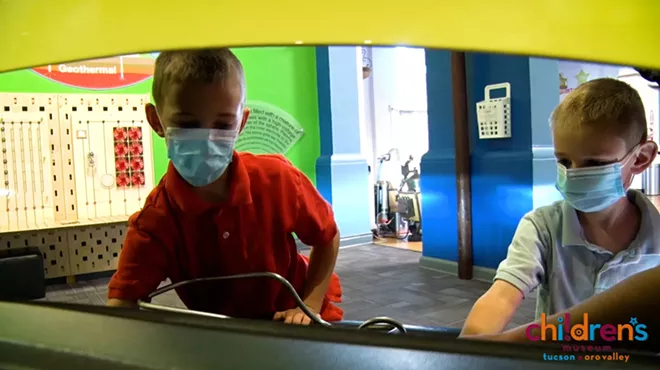Thursday, July 24, 2014
Word Odyssey - Mein Doppelganger: Useful Foreign Words

- Image courtesy of Shutterstock
I’ve said it before, and I’ll say it again: English is a mongrel language. Its roots are Germanic, but it’s borrowed heavily from French, Latin, Spanish, Scandinavia and just about every other language on Earth. There are many reasons for all this borrowing; one of them is that English just doesn’t have a word to describe a particular concept or phenomena, but another language does. So we borrow. In a previous column I mentioned the weather terms haboob and monsoon that we’ve borrowed from Arabic. And when it comes to sex and food, where would we be without the French? We could get by without the German doppelganger for a person’s ghostly double or alter ego, but why would we want to? Two other German favorites are schadenfreude, which is getting a kick out of someone else’s pain or misfortune, like when a waitress spills a tray full of drinks, and zeitgeist, the cultural spirit of a particular era, like the 1960’s.
Most of these foreign words come into English without a deliberate design, but there are actually people who scour foreign languages to come up with new English words. On a trip to Oxford I found a book entitled They Have a Word for It by Howard Rheingold, a co-founder of Wired magazine. The entire book is devoted to foreign words for which English has no equivalent. I planned to do a column on these, but never got around to it. But then a friend sent me a link to the online magazine Mental Floss, which listed 15 of these same kinds of foreign words. That got me off my butt, so here we go.
You know when your teeth start chattering when you’re freezing? English doesn’t have a word for it, but Persian does. It’s zhaghzhagh. I can’t find the Persian etymology, but it seems kind of onomatopoetic because it does kind of mimic the chattering sound. We all know someone who is an impractical dreamer with absolutely no common sense. The Yiddish word for such a person is luftmensch, literally meaning air person.
The Japanese take beauty very seriously, so they have many words to describe specific kinds of aesthetic experiences. Sometimes we find beauty in something just because it looks old, like a one hundred year old fir floor. The Japanese say that an object that is beautiful because of its aged patina has sabi—a unique beauty that you can’t find in a shiny new wood floor. If something is made more beautiful because it is imperfect, like an unvarnished floor that is scratched here and there, Japanese would say that it has wabi—flawed details that make an elegant whole. Some people might say that the jumbled architecture of my town of Old Bisbee is a conglomeration of flawed details that makes an elegant, or at least charming, whole. In Japanese, things that become more beautiful as they age have shibui. Shibui can apply to a person, too, which might be helpful when you see your character lines expand in the mirror year after year.
Just about everyone has tried to revive a past love affair at some point in their lives. Italians call this cavoli riscaldatie. It means reheated cabbage—limper and less tasty than when it came fresh from the fire. Russian has a term for the feeling you have for someone you once loved, but don’t anymore: rasbliuto. The love may have been lost because of too much carousing. A German husband who has been carousing customarily brings chocolates or flowers to his wife as a peace offering, a custom that became known as drachenfutter—which translates as dragon fodder.
When someone goes public with details of your private life, usually delivered in confidence, Italians call that mettere in piazza”—literally, to put it in the town square. Today we might say mettere in Facebook.
There are people in the world who plan everything. Then there are those who just tinker around without any definite object in mind. The French call such a person a bricoleur, a term invented by the great French sociologist, Claude Levi Strauss.
Last week I ran into a woman at the post office who cheerily addressed me by name. I definitely recognized her, but I couldn’t recall how I knew her, or from where, and drew a complete blank on her name. Scots would say that I tartled—a perfect word for the embarrassing moments as my wheels were uselessly spinning. But tartling is better than being cornered by an acquaintance and told a drab tale of woe, which also occasionally occurs at my post office. Italians would call such an acquaintance an attaccabottoni—a buttonholer. And that is the denouement of today’s Word Odyssey column.
Tags: word odyssey , britt hanson , word meanings









